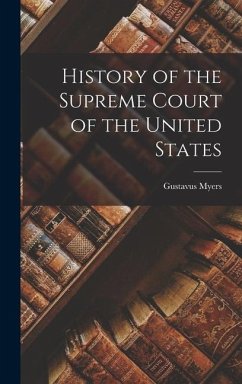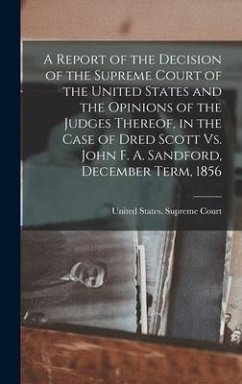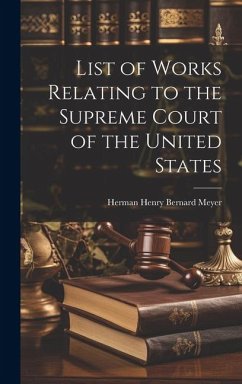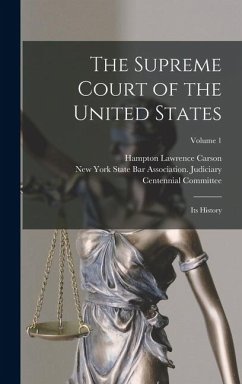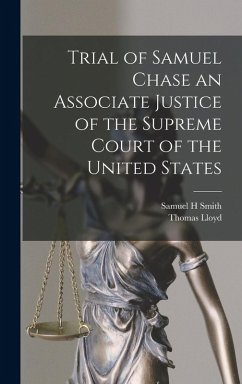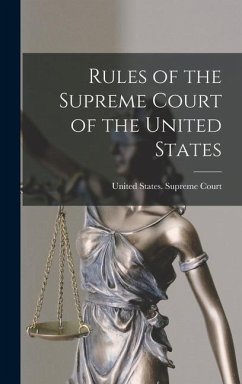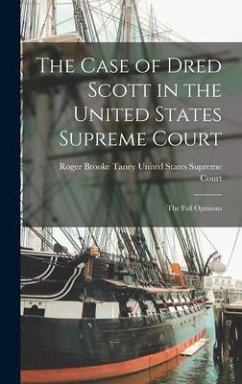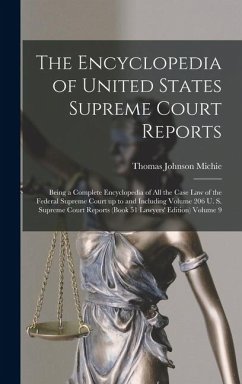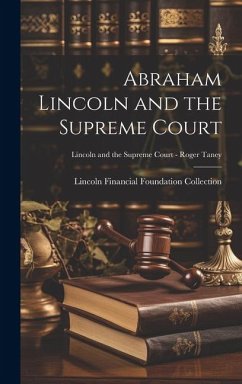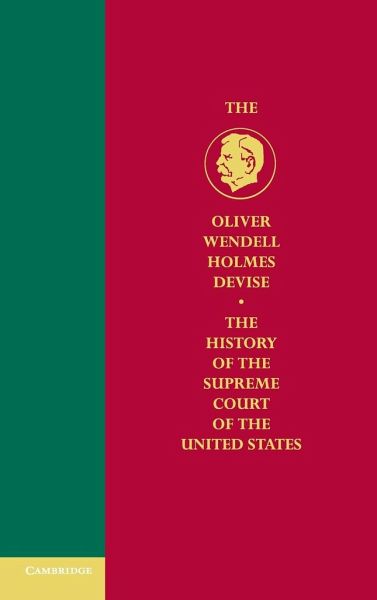
The History of the Supreme Court of the United States
Versandkostenfrei!
Versandfertig in 1-2 Wochen
213,99 €
inkl. MwSt.

PAYBACK Punkte
107 °P sammeln!
The Birth of the Modern Constitution recounts the history of the United States Supreme Court in the momentous yet usually overlooked years between the constitutional revolution in the 1930s and Warren-Court judicial activism in the 1950s. 1941-1953 marked the emergence of legal liberalism, in the divergent activist efforts of Hugo Black, William O. Douglas, Frank Murphy, and Wiley Rutledge. The Stone/Vinson Courts consolidated the revolutionary accomplishments of the New Deal and affirmed the repudiation of classical legal thought, but proved unable to provide a substitute for that powerful le...
The Birth of the Modern Constitution recounts the history of the United States Supreme Court in the momentous yet usually overlooked years between the constitutional revolution in the 1930s and Warren-Court judicial activism in the 1950s. 1941-1953 marked the emergence of legal liberalism, in the divergent activist efforts of Hugo Black, William O. Douglas, Frank Murphy, and Wiley Rutledge. The Stone/Vinson Courts consolidated the revolutionary accomplishments of the New Deal and affirmed the repudiation of classical legal thought, but proved unable to provide a substitute for that powerful legitimating explanatory paradigm of law. Hence the period bracketed by the dramatic moments of 1937 and 1954, written off as a forgotten time of failure and futility, was in reality the first phase of modern struggles to define the constitutional order that will dominate the twenty-first century.





